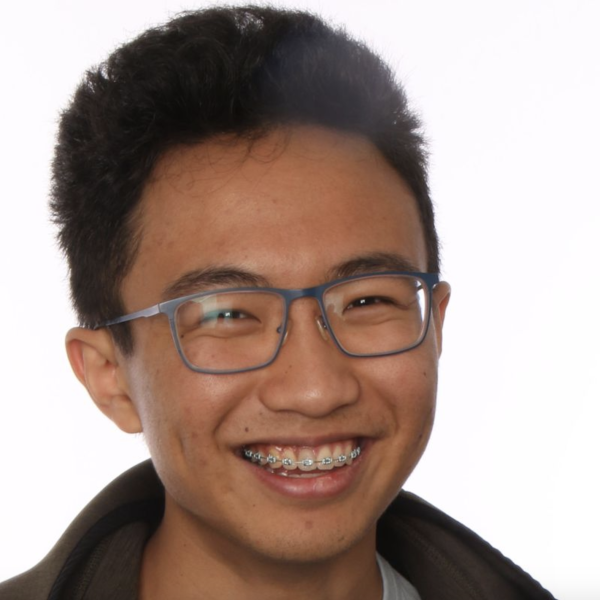“Responding to the tragedy in Atlanta.” “Response to Derek Chauvin verdict.” “Tragedy in Texas.” “Events in D.C. (January 6 insurrection).” “Community Support in Difficult Times.”
It is probable that one or more of these subject lines has popped into your inbox during your time at Urban. You may also have seen peers engaging with their community and issues they care about through school-wide events during Month of Understanding (MOU), city-wide protests and celebrations at All School Meetings (ASM).
According to the Urban website, one of the school’s core values is: “Learning extends beyond the classroom to instill in students a sense of mission and purpose as citizens of the larger community and world.” Civic engagement is a cornerstone of the community, so it is no surprise that the school community is centered around social responsibility. With recent events such as the United States’ Supreme Court overturning affirmative action, fires in Lahaina, Hawaii, a massive earthquake in Morocco and violence breaking out between Israel and Hamas, there is a heightened need for the administration to actively engage with students.
The school responds to current events in a multitude of ways, through all school meetings, student panels, speakers, schoology posts and emails. However, due to the rapid nature of news spreading, their responses are not always perfect. So as a school, what is the administration’s place in regards to fostering conversations around current events and addressing challenging topics in a supportive manner?
Adjustments to the curriculum itself are the first measures that Urban takes to foster conversations around current events. “We try to build [conversations around current events] into our ongoing program as opposed to being reactive,” said Charlotte Worsley, assistant head for student life.
This ongoing program stems from a fundamental understanding of how the world works via Urban’s unique education system. The website states, “Urban’s academic program seeks to involve students in their broader community — the school, the city, the world — and develop in them a sense of social responsibility.” Students gain new perspectives through upper-level elective classes about real-world problems, such as Modern Middle East and Women’s United States History and core classes such as Identity and Ethnic Studies.
In addition to its curriculum, Urban holds spaces outside of classes such as affinity groups and MOU events where students have the opportunity to relate to and learn from others outside the classroom.
But when the curriculum cannot cover the complexities of current events, according to Head of School Dan Miller, Urban prioritizes the well-being of the student body when determining its approach regarding responses to current events. “The health and safety of students is always going to be the guiding variable in thinking about how best to support [them],” said Miller. “Caring adults across the community are the most critical element of our support and they are deeply responsive to student needs.”
When asked to reflect on her experiences as an Asian American student during the Stop Asian Hate movement, Kikani Libadia ‘21 said, “The teachers who were part of our [Asian Pacific Islander] affinity space did a lot to check in with us and make sure that we were given space to speak [about] our concerns and work through any emotions that we were feeling.”
Through Urban’s core value of learning expanding beyond the confines of a classroom, it deals with complex and controversial issues via education as a means to initiate conversation.
“I think you have to start with [Urban’s] core values and the kind of community that the school aspires to be. You also have to think about the fact that it’s a school,” said Aku Ammah-Tagoe, dean of equity & inclusion during the 2020-2022 school years. “First and foremost, our job is to help people learn. When the school is buzzing, it’s often because there’s an opportunity for young people to learn more about something that’s happening in the world.”
“When I was a student, there were a lot of social justice [issues] and current events that affected [me]. … For example, there were the Black Lives Matter protests and Stop Asian Hate movements going on,” said Libadia. “As a student who is Asian American, it was hard having to hear about all of this news all the time [at school].”
The next step is to reach out to students belonging to any affected communities, which is often student-led. “[Urban has] been that way since its founding. It’s a partnership with students,” said Worsley. “Where there’s no definite this or that, then we have a conversation, often guided by the needs of the students.”
Though emails are an effective way to reach out to entire communities at once, administrators recognize that individuals will react differently. “ [It] is very common for the grade Dean to send out [an email] after an incident to the [people] that have been impacted,” Worsley said. “And that email goes just to those students from their grade Dean [saying], ‘We know this happened. We’re thinking about you. If you need something, let us know.’”
Although being student-driven is part of Urban’s philosophy according to its core values on the website, trusting students to single-handedly lead complex conversations is not always simple.
The expectations to lead discussions surrounding current events can take a toll on student leaders. “Admin doesn’t want to seem like they’re forcing students to hold space, because on its own, it’s already difficult enough to be addressing social justice issues within your own community,” said Libadia. “So that kind of becomes, ‘Where’s the compromise that we can land on where admin can help, but students [aren’t] having to give 120% of themselves?’”
“I remember multiple times scrambling to get a panel out there. We had a forum to get all this information together. There was a point, though, where we [were] incredibly burnt out,” said former Black Student Union (BSU) Co-Leader Max Miller ‘22.
Some believe the student body puts pressure on the school to always have the right response, which can hold discussions back.
“BSU is always asked to take the lead on discussing [race-related] issues because there [is] a big fear that if the administration did it on their own … [the community would] somehow [be] missing the whole story,” said Max. “There’s kind of a lack of initiative from the administration because of a fear of, if they do take initiative, who will they harm?”
It is often tough to strike a balance between taking initiative and getting student feedback. In 2022, administration brought in Jean Roland, the managing attorney from the District Attorney’s office, to speak at an all-school meeting about the legal ramifications of sexual violence. Students were not given content warnings prior, and the presentation was triggering for some.
Although the school followed up and apologized to the student body, the assembly had lingering effects. “I don’t know that they briefed the presentation as thoroughly as they should have and really thought about how it could affect the students,” said Sameera Notaney ‘24. “[While] I understood they were trying to normalize or open up the conversation, … you are also affecting all the students who have already experienced [sexual harm].”
Administration is still refining their approach to responding to current events and handling sensitive topics in a caring and well-rounded way. “Because you’re working with people, nothing is ever perfect. We chose a guest speaker for MultiCulti for MLK [Dr. Martin Luther King Jr.] Day and it was definitely a really multicultural speaker, but it wasn’t a Black person,” said Ammah-Tagoe. “When I announced this to MultiCulti, they were rightly upset with me … so we found a new speaker. I think it was like two weeks ahead of time. [You’ve] just got to act.”
When students want to take action themselves, the administration encourages students to be the initiators. “As adults, we never go to students and say, ‘You should do that,’” said Worsley. “If it comes the other way and it’s local and a lot of kids want to do it, then we support and facilitate helping students.”
Sometimes it is a matter of initiating conversation in both the local and school community. “Urban did a great job of encouraging students to attend things like protests and they made space for students to protest on pretty much any social justice issue they wanted to,” said Libadia. “A lot of other high schools don’t give that opportunity to their students.”
While Urban does provide spaces for students to talk about current events during MOU, these efforts sometimes fall short during the rest of the school year. “[Admin] did give us options for if we wanted to talk to the larger Urban community as a whole … I will say for events like MOU that was kind of the time … Outside of that month, there isn’t an open invitation. It’s kind of like students are the ones who have to really initiate,” said Libadia.
Many feel Urban helps its students find their purpose as civically engaged citizens. However, it is important to remember that it is an ongoing process. “I think it would have been really nice for Urban to remind us that it wasn’t necessarily an obligation for us to educate the school about these events and to create spaces to talk about it,” said Libadia. “ I think the fact that it was the students [who] were obligated to do these things is an issue.”
She said, “But I also think that going to college and being surrounded by people who are a lot less aware of their world and the implications of their actions … makes me grateful for the fact that Urban did try to emphasize that sort of thoughtfulness.”


